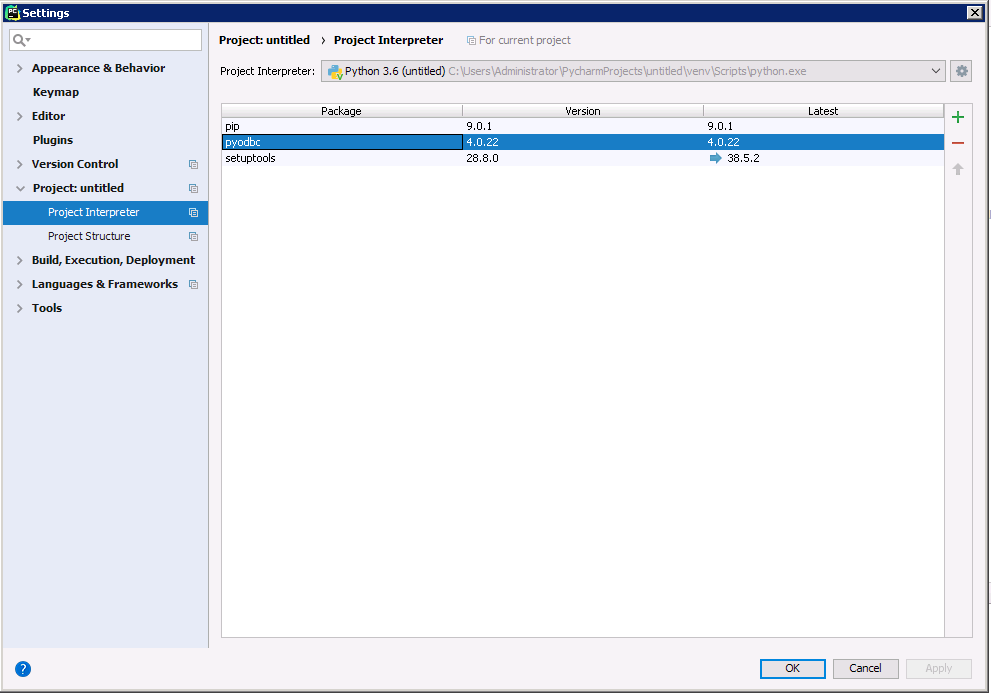Discover how a bimodal integration strategy can address the major data management challenges facing your organization today.
Get the Report →Using the CData ODBC Driver for Active Directory in PyCharm
Connect to Active Directory as an ODBC data source in PyCharm using the CData ODBC Driver for Active Directory.
The CData ODBC Drivers can be used in any environment that supports loading an ODBC Driver. In this tutorial we will explore using the CData ODBC Driver for Active Directory from within PyCharm. Included are steps for adding the CData ODBC Driver as a data source, as well as basic PyCharm code to query the data source and display results.
To begin, this tutorial will assume that you have already installed the CData ODBC Driver for Active Directory as well as PyCharm.
Add Pyodbc to the Project
Follow the steps below to add the pyodbc module to your project.
- Click File -> Settings to open the project settings window.
- Click Project Interpreter from the Project: YourProjectName menu.
- To add pyodbc, click the + button and enter pyodbc.
- Click Install Package to install pyodbc.

Connect to Active Directory
You can now connect with an ODBC connection string or a DSN. See the Getting Started section in the CData driver documentation for a guide to creating a DSN on your OS.
To establish a connection, set the following properties:
- Valid User and Password credentials (e.g., Domain\BobF or cn=Bob F,ou=Employees,dc=Domain).
- Server information, including the IP or host name of the Server, as well as the Port.
BaseDN: This will limit the scope of LDAP searches to the height of the distinguished name provided.
Note: Specifying a narrow BaseDN may greatly increase performance; for example, cn=users,dc=domain will only return results contained within cn=users and its children.
Below is the syntax for a DSN:
[CData ActiveDirectory Source]
Driver = CData ODBC Driver for Active Directory
Description = My Description
User = cn = Bob F,ou = Employees,dc = Domain
Password = bob123
Server = 10.0.1.2
Port = 389
Execute SQL to Active Directory
Instantiate a Cursor and use the execute method of the Cursor class to execute any SQL statement.
import pyodbc
cnxn = pyodbc.connect('DRIVER={CData ODBC Driver for ActiveDirectory};User = cn = Bob F,ou = Employees,dc = Domain;Password = bob123;Server = 10.0.1.2;Port = 389;')
cursor = cnxn.cursor()
cursor.execute("SELECT Id, LogonCount FROM User WHERE CN = 'Administrator'")
rows = cursor.fetchall()
for row in rows:
print(row.Id, row.LogonCount)
After connecting to Active Directory in PyCharm using the CData ODBC Driver, you will be able to build Python apps with access to Active Directory data as if it were a standard database. If you have any questions, comments, or feedback regarding this tutorial, please contact us at [email protected].






